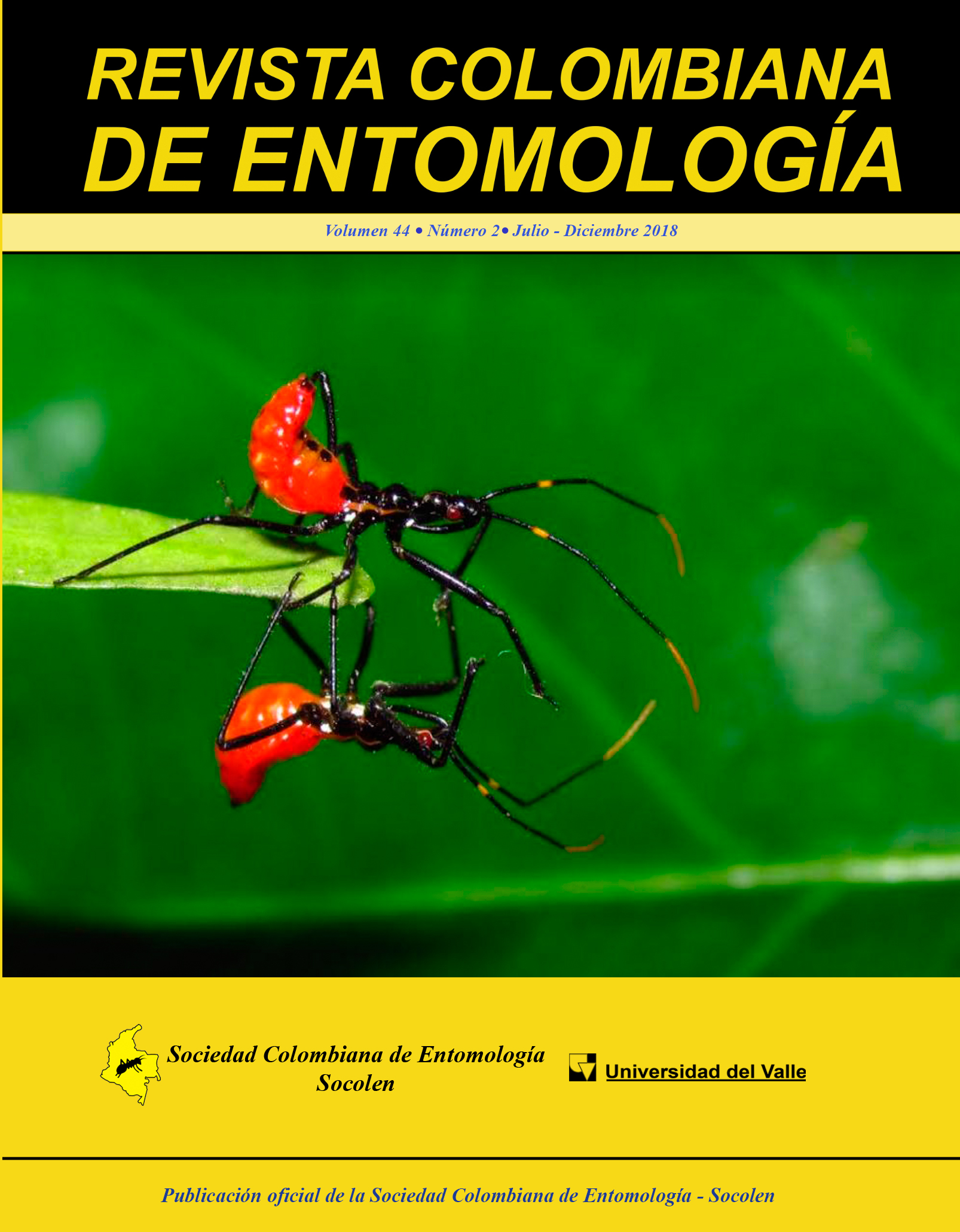Predatory capacity of Cathartus quadricollis and Ahasverus advena (Coleoptera: Silvanidae) on Hypothenemus hampei (Coleoptera: Curculionidae) under laboratory conditions
Keywords:
Biological control, augmentation, predation, coffee qualityMain Article Content
The coffee berry borer (CBB) causes economic damage and quality deterioration of coffee. CBB reproduces inside the fruit that remain after harvesting. In Colombia, native predators have been reported attacking this pest, among them the coleopterans Ahasverus advena and Cathartus quadricollis. This study, which was carried out under lab conditions at Cenicafé, was evaluated the predation of these species on CBB. Adults and larvae of the two predator species were released in ratios of 1, 3 and 5 per infested coffee bean (the treatments) in four independent bioassays. The decrease in CBB populations inside the beans after establishing treatments (the response variables) was determined. The Experimental Units consisted of 10 infested coffee grains observed over 18 days with three infesting holes inside a glass container where the four treatments were applied under a completely randomized design with ten replicates. An absolute control without predators was used for each bioassay. A. advena adults and larvae significantly decreased CBB up to 63.2 % and 42.3 % with respect to the control, presenting a higher predation capacity when three predators per grain were released. In addition, C. quadricollis decreased CBB population up to 46.2 % and 69 % when three adults and five larvae per grain were released, respectively.
Downloads

This work is licensed under a Creative Commons Attribution-NonCommercial-ShareAlike 4.0 International License.
Authors retain the copyright on their work and are responsible for the ideas expressed in them. Once a manuscript is approved for publication, authors are asked for a publication license for the term of legal protection, for all territories that allows the use, dissemination and disclosure of the same.

